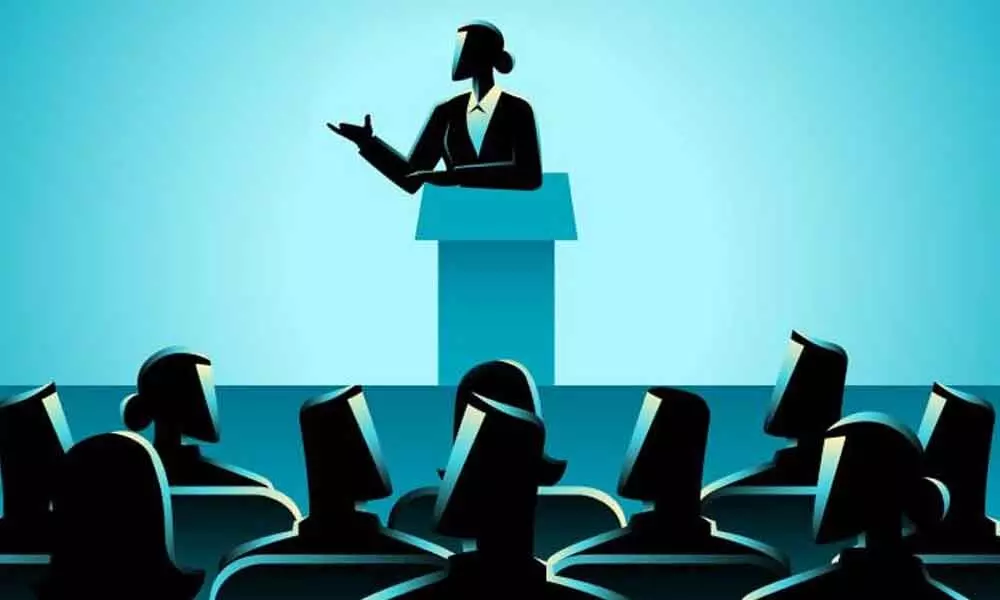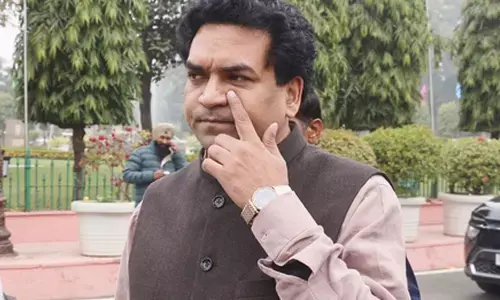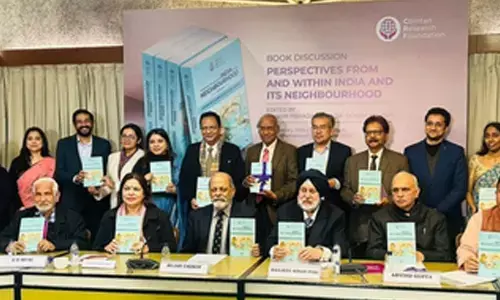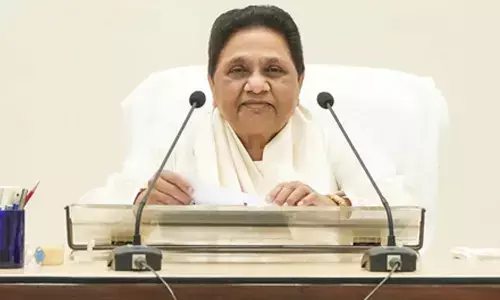Thought leadership: Need of the hour

We are living in one of the worst times in history as Covid-19 pandemic has opened up a can of worms, hitting countries across the world politically, economically and socially.
We are living in one of the worst times in history as Covid-19 pandemic has opened up a can of worms, hitting countries across the world politically, economically and socially. As far as India is concerned, Covid-19 has added destitution to the poor, constant misery to the unemployed, desolation to the directionless youth, morbidity to the marginalised sections of society. It badly hit agriculture, business, industries, small scale sector, tourism, education, IT sector, health system etc., leaving the world traumatised and up the creek.
The only solution to these complex issues can be provided by what is called the 'thought leadership'. Thought leadership connotes a leadership orientation underpinned by unconventional leadership that is historically nuanced, culturally sensitive and contextually grounded. Thought leadership, distinct from other forms of leadership, is about 'leadership that is based on progressive ideologies, beliefs orientations with significant programmes and impact appeal'.
Introduced in the early 1990's the concept of thought leadership coined by Joel Kutzman, was first used to describe a futurist, a person who was widely known and acclaimed for his/her unique thoughts and ideas that were considered unusual at the time and yet suitable for the present and forthcoming times. Thought leadership breaks into two constituent parts as 'thought' and 'leadership'. Thought means ideas, thinking, reasoning, views etc., which are well required entities of a person. The leadership is the art and process of leading, guiding, motivating and influencing a group of people to act towards achieving a common goal.
A thought leader is a change maker who moves and inspires others with his innovative ideas and help turn those ideas into reality. They spread their ideas, programmes or initiatives far beyond a particular organisation or society to make a broader impact in their organisation or community.
The need for a thought leader can be traced in almost all fields of work whether it is politics, military, business, strategy and other arenas where challenges confront. Thought leadership is important for running an organisation, especially larger ones. Because of complexity and length of the decision-making in a complex environment where a large number of people are involved in the process, thought leaders can be handy in taking an immediate decision.
Thought leadership is viewed as a radical departure from all traditional leadership styles. It is all about promotion of new ideas, an initiative rather than a position or role. It goes with the function rather than structure alone. Moreover, thought leadership is democratic, egalitarian, ephemeral, non-hierarchical, and it is not easily monopolised.
It has the capacity to anticipate and think. A thought leader is one who always favours innovation and development, a progressive person. He/she always plans for the future and considers future developments when making plans, especially in relation to using modern methods.
Thought leadership involves in constant monitoring that ideas can result in action. In today's competitive world, only those organisations can survive which offer a competitive edge over others and surely thought leaders can help organisations in achieving so. Thought leader enables the organisation to withstand any adverse economic conditions in the geographic area in which it operates.
They do not exclusively rely on the advices but think independently and weigh the ideas received before implementing to excel in their chosen field which would sustain over generations and thereby create a favourable impact on the larger sections of society.
Thought leadership can carve out a distinct space and does not go with the crowd.
Thought leadership qualities can be exhibited by even non-managerial employees with progressive mindset and the capability of championing new ideas.
Thought leadership can inspire the entire team to draw results by being able to instill the necessary zeal in the team to accomplish the goals. Thought leaders can be construed as someone who stands above subject-matter expertise and stands as an icon in his/her sphere by exhibiting track record.
Thought leadership has the highest credibility which is an indispensable quality and a prerequisite. Thought leaders help us in making informed and concrete decisions and give us confidence to stick and move ahead with the idea.
Thought leadership is expected to follow a pre-emptive and preventive approach. Thought leaders drive the people to align to the new ideas to achieve the vision and mission and such leaders visualize the organization's growth over a long period and carefully design the organization's structure so that it will not succumb to the competitor's onslaught and sustain the growth year after year.
Thought leadership is the most successful leadership in their respective fields but their expertise and experience vary. And what matters is expertise with diverse experiences to be adopted in other fields also. Thought leaders are followed because of their ability to bring deep insights into the subject of own experience which will enable them to the other side of the coin to see a subject in different dimension that focuses their attention to thinking beyond the conventional forms.
Thought leadership is intertwined with innovation. As a critical element to the success of the organisation, innovation is becoming a strategic priority and core value of the companies in the current business scenario. It can be a savior from downturns as innovative approaches are in demand even during unfavorable economic and social conditions. It focuses on internal efficiencies and fosters improved work quality which in turn leads to increased productivity and social benefits. Based on the power of ideas to transform our way of thinking a strong tie is established between motivation and thought leadership.
Thought leader can emerge from any source. But those who want to be a thought leader should have knowledge, insight, experience and a point of view put together. They should develop these qualities simultaneously. In other words, for thought leadership, thought liberation and critical consciousness should be concurrently. Thought leadership without a liberated mind is futile. Higher levels of consciousness based on comprehensive understanding of phenomena make for a better thought leader.
Thought leaders should not just be individuals who produce valid scientific ideas and observations rooted in their respective knowledge. They ought to be individuals who can read complex situations well and can bring out the best in other people. In other words, a thought leader should lead others also to think, innovate, self-motivate and reach their highest potential. What is needed is an insight with a strategic and thought leadership traits in with a zeal to uplift the society to higher levels of development and well-being. Thought leader should think differently, bring innovative ideas and implement the ideas which he thinks as the best to suit the needs of society which he leads and ensure the overall growth of the society which sustain over generations.
The emergence of thought leadership is a long-term process. Moreover, thought leadership status cannot be achieved easily. One has to muster own experiences and create credibility over a long period of time. It requires patience, persistence, hard work and willingness to listen to comprehend and to learn from others. Because, those who observe and connect information from a number of sources are generally well positioned to create ideas that are congenial to the needs of society. All these things cannot be achieved by those leaders who try to emerge from scratch; it takes a sufficiently longer time than the society can wait for. So, the plausible solution is that the current leaders from different fields should realise the necessity of the unique type of leadership and try to acquire thought leadership traits with a vision, mission and commitment. As thought leaders, they have to dedicate themselves for solving the knotted problems the society is facing. The world remembers those successful leaders as the ones who have left their footsteps in the sands of time.
(The writer is Professor & Head, Department of MBA, SVCE College, Tirupati)















